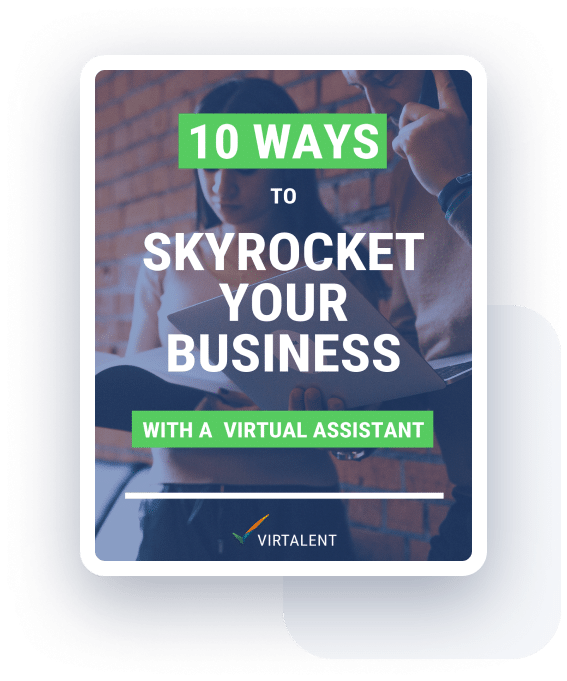Emotions and business are two words that historically didn’t mix. Business has been, in the past, all about being the consummate professional and never showing your feelings. However, as time progressed, being more aware of your emotions and empathetic has become an even more important skill than ever before. Emotional Intelligence, or EI, is now as critical to your success as an entrepreneur as your financial knowledge, marketing strategies, and networking abilities.
What Is Emotional Intelligence?
At its core, EI is the capacity to recognise, understand, and manage our emotions while also being in sync with and influencing those around us. This concept might sound simple, but the layers of EI impact every area of our personal and professional lives.
Considered part of the “soft skill” set, the soft skill market is predicted to grow to an impressive $47.16 billion by 2027. But it isn't just about global trends. EI is about daily interactions, leadership styles, and team dynamics. A study from Yale University revealed that employees under the guidance of emotionally intelligent supervisors reported higher levels of happiness, creativity, and innovation. This is a clear nod to the benefits of EI in leadership. However, it's equally important to recognise areas for growth. The very same study highlighted that 70% of employees had negative feelings towards their work when managed by individuals with low Emotional Intelligence.
What Are The Key Components Of Emotional Intelligence?
Self-Awareness: This is the foundational stone of EI. It's the ability to accurately perceive your emotions in the moment and understand how they affect your thoughts and actions. A person with strong self-awareness can identify their emotional triggers, strengths, and areas for improvement.
Self-Regulation: Beyond just recognising emotions, self-regulation involves managing and adapting your emotional reactions to different situations and individuals. This can mean controlling or redirecting disruptive impulses and moods or even suspending judgement to think before acting.
Motivation: At its essence, motivation in the context of EI isn't about external rewards or recognition. Instead, it's an inner drive propelled by a passion to meet objectives or the sheer joy of doing something. It’s about being driven to achieve for the sake of achievement.
Empathy: Often considered the most easily recognisable component of EI, empathy is the ability to comprehend the emotional makeup of other people. It’s about walking in another person's shoes and understanding their feelings, needs, and concerns.
Social Skills: This component focuses on navigating social scenarios and building relationships. It includes skills like active listening, verbal communication, non-verbal communication, and leadership. Someone with strong social skills can manage disputes, foster relationships, and inspire others.
The importance of Emotional Intelligence in the business realm really can't be understated. EI plays a crucial role in determining the quality and success of those interactions as we make connections, negotiate deals, lead people, and interact with our customers.
It's worth noting that EI is not fixed. With awareness, practice, and a commitment to personal growth, anyone can enhance their Emotional Intelligence, making it an invaluable tool to develop for individuals at all stages of their entrepreneurial journey.
Am I Already Emotionally Intelligent?
Many people, through their own experiences, are already quite Emotionally Intelligent without even realising it. If you think you may be, or even not, here are a few signs to consider:
Adaptable Decision Making: If you find yourself assessing situations from multiple perspectives and adapting your decision based on the emotional needs of those involved, you're likely exhibiting EI.
Feedback Reception: Emotionally intelligent entrepreneurs not only seek feedback but also handle constructive criticism with grace. They see it as an opportunity for growth rather than a personal attack.
Conflict Resolution: If you’re adept at resolving conflicts so that all parties feel understood and valued, this is a clear sign of high EI. It's about finding a middle ground while respecting the emotional perspectives of all involved.
Building Authentic Relationships: Relationships aren't just about networking for business gain. If you find yourself genuinely connecting with people and nurturing those connections beyond the professional realm, your EI plays a crucial role.
Intuitive Team Leadership: Leading with empathy, understanding team dynamics, and inspiring and motivating different individuals is a hallmark of emotionally intelligent leadership.
Understanding and recognising these traits in yourself can be empowering. However, if you feel there are areas you'd like to develop further or are just embarking on your EI journey, resources are available.
Resources For Developing Emotional Intelligence
Books
Emotional Intelligence by Daniel Goleman is the seminal book that popularised the concept of EI, offering insights into how it impacts our personal and professional lives. Another book to consider is Working with Emotional Intelligence by Goleman. This book dives deeper into EI's workplace implications, offering practical development advice.
Online Courses:
Coursera and Udemy offer courses tailored explicitly for Emotional Intelligence in business. These often come with actionable strategies and self-assessment tools.
Workshops & Seminars
Many professional development organisations and coaches offer in-person and online workshops dedicated to enhancing EI. They provide hands-on training and real-time feedback.
Mindfulness and Meditation
Mindfulness practices have been shown to enhance self-awareness, one of the pillars of EI. Apps like Headspace or Calm provide guided sessions that can be easily incorporated into daily routines.
Feedback Tools
Regularly seeking feedback from peers, employees, or mentors can be invaluable. Using 360-degree feedback methods provides a holistic view of one's strengths and areas for improvement.
Remember, Emotional Intelligence is about continuous growth and self-awareness. Whether you're just starting or looking to refine your EI, these resources can guide you towards more meaningful interactions and, ultimately, greater success in the entrepreneurial realm.

Harnessing The Power Of Emotional Intelligence
The emotions you once believed held you back in business could be your most powerful asset. There's undeniable value in sharpening your Emotional Intelligence and being open to feeling and expressing it all. At its core it's about connecting with others and a deeper connection with yourself. By embracing and nurturing your EI, you can enjoy more fulfilling relationships, lead more effectively, and better understand your motivations and responses.
As you journey towards mastering Emotional Intelligence, remember that a helping hand can make all the difference. Virtalent's Virtual Assistant services support your day-to-day tasks, allowing you the time and space to focus on personal and professional growth. Consider booking a consultation call with Virtalent today and explore how working with a VA can help make the time to develop your Emotional Intelligence even easier.





